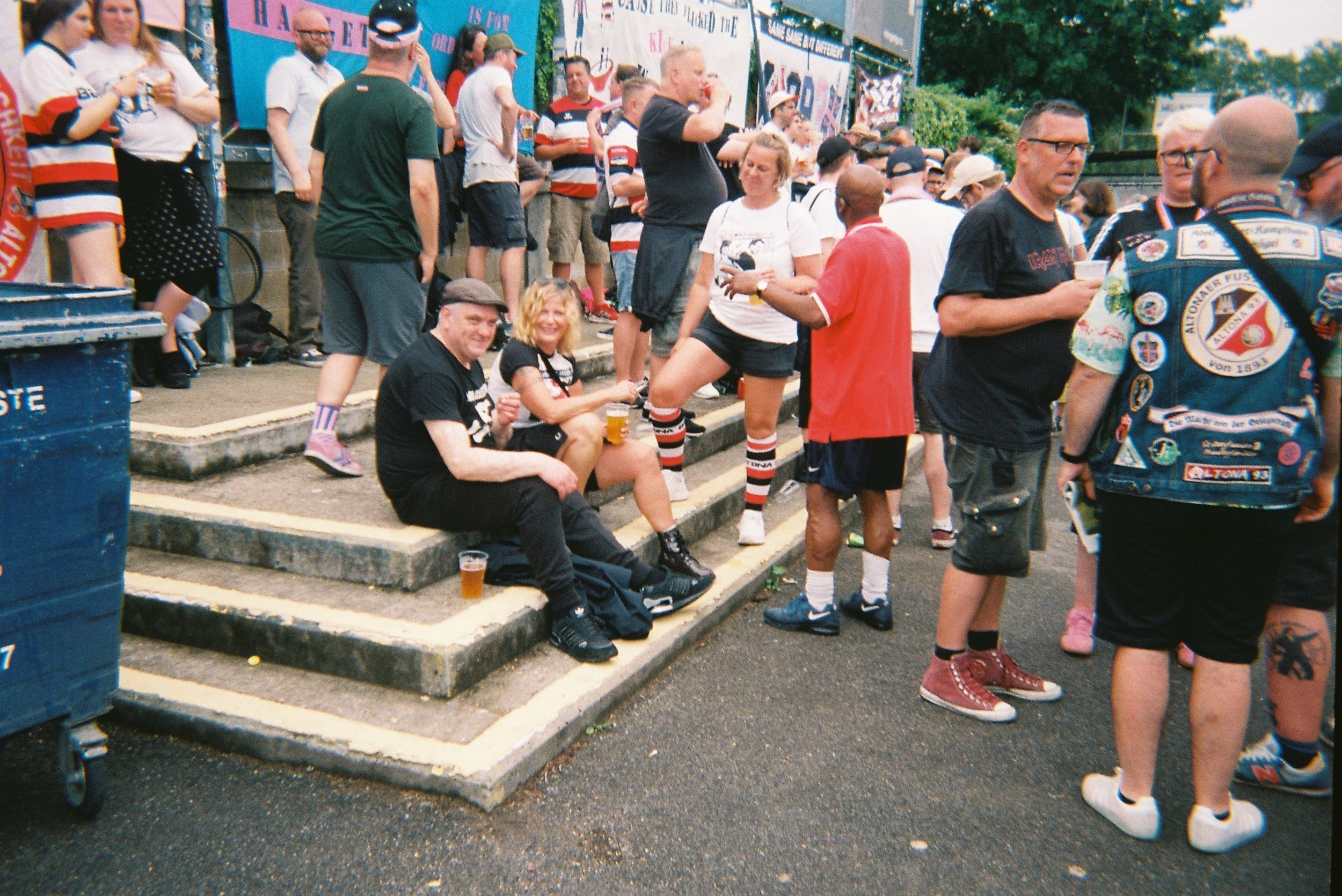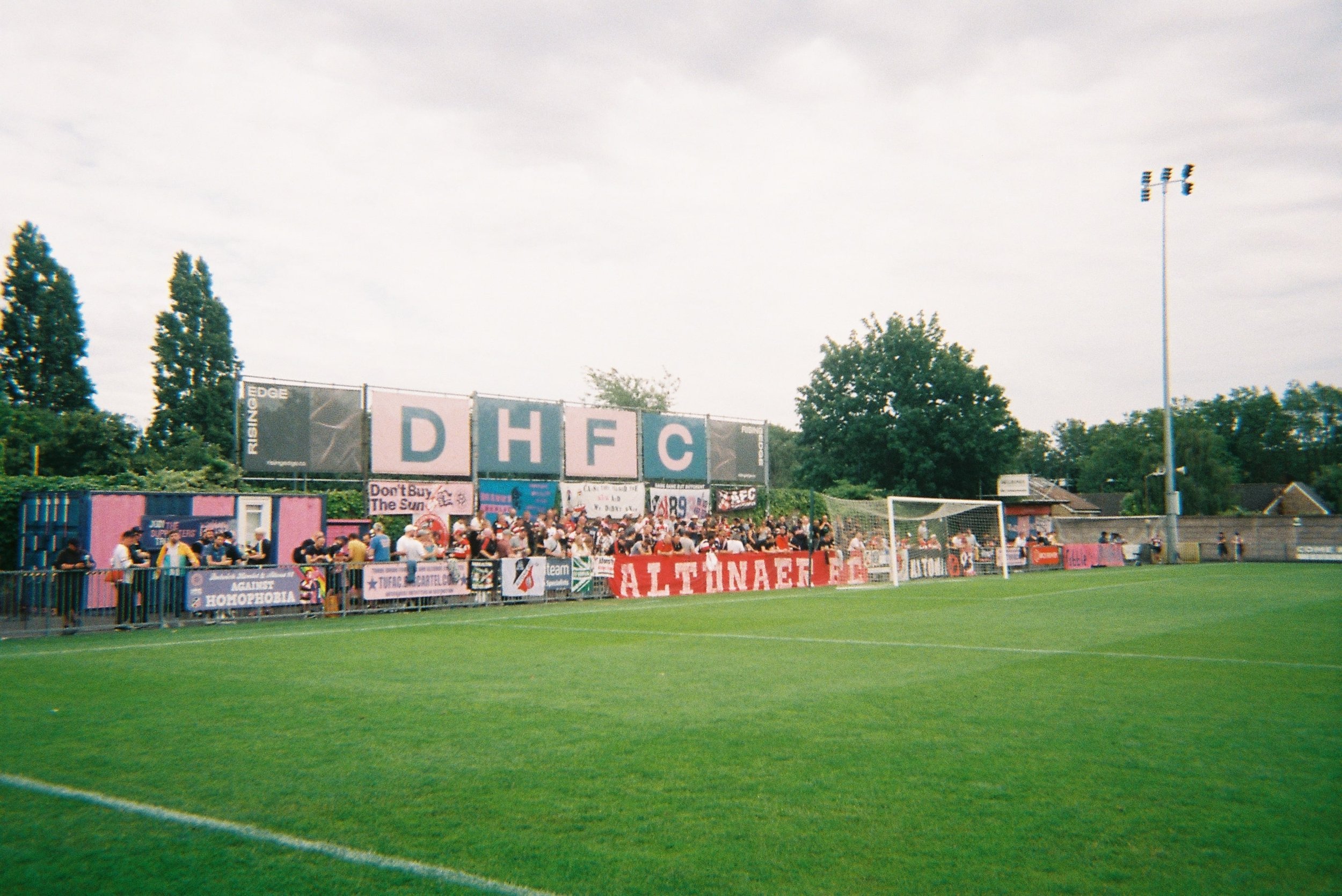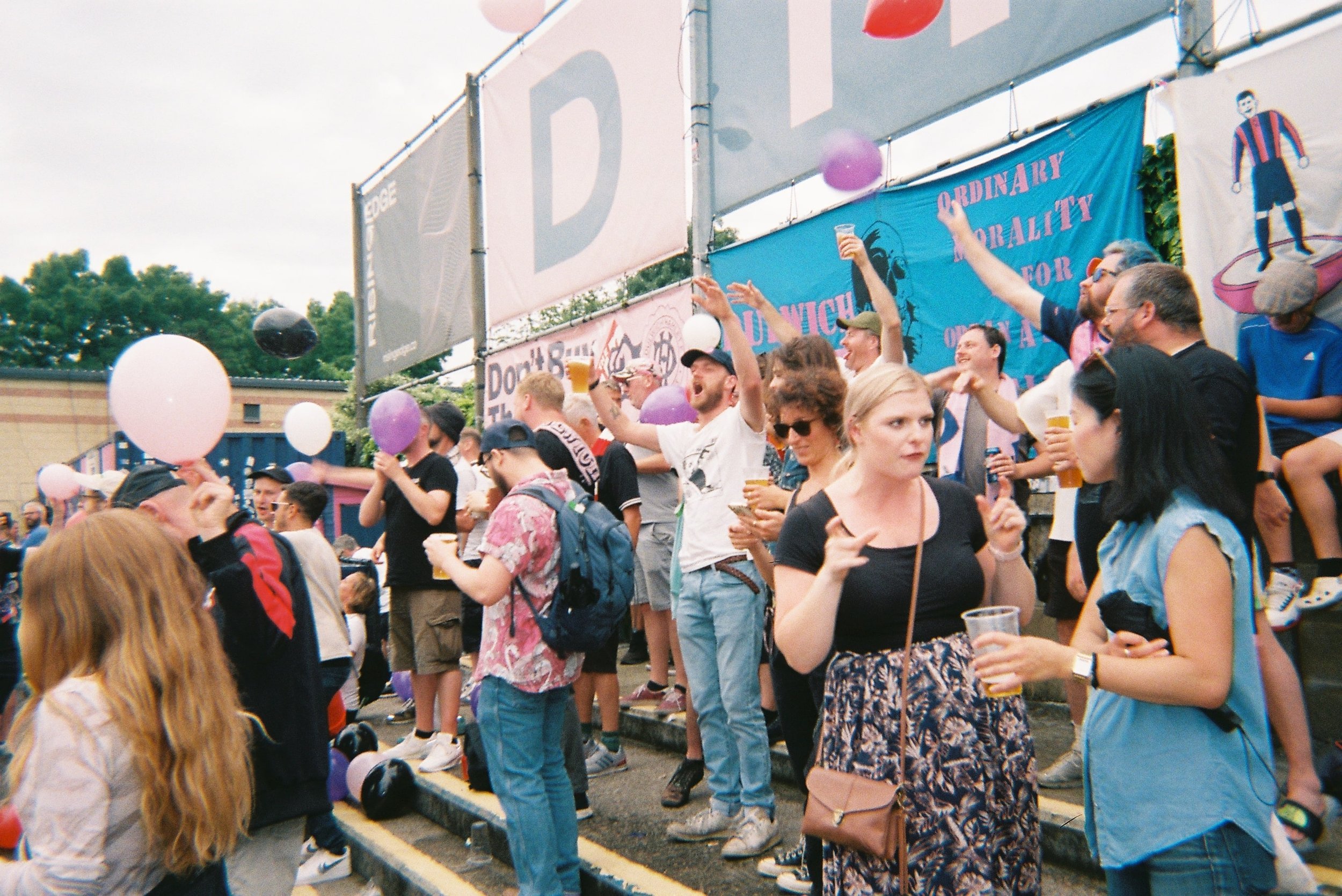A Corner of Paradise in South London
Alex Wilson, England
My name is Alex Wilson, I’m 34 years old and I live in south London. I’ve always been too malcoordinated to ever play football, so my enjoyment has always come from watching. My first ever football memory was watching England lose to Germany on penalties in the semi-final of Euro ’96. I was 7 years old, and ended up on my parents’ bed, crying and screaming at the unfairness of it all.
After that my dad started taking me to watch his team, Hull City. We were living in the south of England at the time, and since they played at the other end of the country, I only ever saw them a couple of times a season. But I still felt a sense of superiority over the other kids at school who supported Manchester United and Liverpool through the television, despite having never been remotely near either of those cities. There was something punk rock about supporting a team that was unglamorous and bad.
Then a few years ago, the owner of Hull City tried to change the name of the football club. He was unsuccessful, but the spell was broken. It suddenly felt like I was watching a club that didn’t belong to its fans, but was just a rich man’s plaything.
At about the same time in 2014, I went to watch a friendly between my local non-league team Dulwich Hamlet and Crystal Palace, essentially because Palace’s striker used to play for Hull City. I was bowled over by the colour, the noise, the passion, the wit, the comradery and above all the unashamed silliness of it all. It was everything I ever wanted football to be, and I’ve been coming ever since.
What did you try to show with the photos? Was there any wider meaning with the photos?
The photos were taken at a pre-season friendly between Dulwich Hamlet and Hamburg club Altona 93 in July 2023. The clubs were formed in the same year, and formed a friendship (or “freundschaft”) after a Dulwich fan visited Altona in 2010. Since then, they have played each other a handful of times, and supporters from one club regularly travel to watch the other.
Altona play in the 5th tier of German football, in many ways the clubs are a mirror-image of each other. It’s remarkable how quickly the fans of both clubs have embraced one another; one Dulwich fan described it as like travelling to another country and finding a long-lost twin.
Since I first watched football as a child, I’ve always been more interested in what was happening in the stands than on the pitch. Dulwich Hamlet and Altona both have especially rich terrace cultures, and I wanted to give a window into the people who watch both teams.
There is one photo of Minou Tsimba-Eggers (in red) and the other Altona players celebrating with their fans at the final whistle. Soon afterwards they led a call-and-response chant with the fans, which is quite common in Germany, but it’s something rarely seen in England. Across all German teams, it feels like there is a much greater sense of connectedness between the players and their fans. As an Englishman, I’m very jealous of it. German football isn’t perfect, but it’s in a much healthier place than English football.
Are there any good stories connected with the people you photographed?
The man in the Dulwich Hamlet “battlejacket” (sandwiched between Altona fans) is called Harry, and is a good friend of mine. Someone said to me the other day that it’s been fun over the past few years watching him transform from an “ordinary football-watching bloke to a kind of feral Shakespearean woodland spirit”.
He is just one of many people who came here one day to watch a match at a football club, and ended up embracing their creativity and weirdness, and finding a part of their personality that they might never have found otherwise. If this football club is about one thing, it’s that.
What impact has football had on you?
Football has taken too much of my time, too much of my money, and occupies too much of my brain. It’s given me better relationships with my family, new friends, and a sense of belonging that is above all a terrific distraction from the meaningless pointlessness of existence. I wouldn’t change a thing.
Ultimately, the only thing that really matters about football is the memories you make with other people. My only footballing ambition is that we have the chance to make many, many more of them.
What role does football play in your community and in England?
Football is everywhere. It’s like the weather or religion or food, in that it underpins our entire natural life, but it’s so prevalent we don’t even notice it anymore. If you ever woke up and found that football had mysteriously disappeared, it would be like looking at the sky and realising the moon had gone.
But because it’s such a constant part of daily life, we forget that it’s such an important part of our culture, and we do a terrible job of protecting it.
What is the future for football in your community and in England? What would you like to change?
In England, I think the clubs at the highest level will continue their journey into multinational global brands that care little for the communities that created them. That’s a tragedy, but I don’t see how we close that particular Pandora’s Box.
At the same time though, I think attendances at lower levels will continue to boom. People come to football because they crave that sense of belonging and community. If the big clubs do not offer it anymore, those people will find somewhere else to go.
Dulwich Hamlet isn’t a unique phenomenon; smaller clubs are blossoming across the country. I think one of the great underreported stories in English football is the extent to which teenagers have started going to non-league football. When I was a teenager, going to non-league games made you a weirdo, but now it’s almost cool.
In terms of our community, we are never going to change the world or fix professional football. All we can do is build our own little corner of paradise in south London. I hope the future sees Dulwich Hamlet’s men’s and women’s teams continue to grow, slowly and sustainably. We want to share this club with as many people as possible without ever losing what makes it special.









